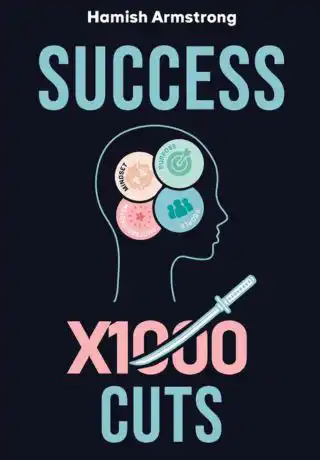The Hidden Link Between Autonomy and Its Implications for Human Identity

The Skeptic’s Paradox: A Nonpartisan Guide to the Riddles of Free Will by Dario Tonelli
The Skeptic’s Paradox: A Nonpartisan Guide to the Riddles of Free Will by Dario Tonelli is a thought-provoking and accessible book that takes readers on a profound yet understandable journey into one of philosophy’s oldest and most perplexing questions: do we truly have free will? Discussing Autonomy and Its Implications for Human Identity.
Published on November 11, 2025, this book presents a fresh and balanced perspective on the mystery of human choice and personal freedom.
Discover The Skeptic’s Paradox: A Nonpartisan Guide to the Riddles of Free Will by Dario Tonelli — a clear and balanced exploration of autonomy and its implications for human identity.
Exploring Free Will in a New Way
Dario Tonelli’s primary goal in this book is not to convince readers of one side of the debate. Instead, he attempts to help readers see the different sides clearly and understand how the concept of free will relates to our sense of autonomy and its implications for human identity.
Many books on this topic take a firm stance — either arguing that free will is an illusion or defending it as an undeniable truth. Tonelli does something different. He sifts through both sides, pointing out where they agree and where they disagree, and invites readers to think for themselves.
The author traces the debate about free will from ancient philosophy to modern science. He refers to thinkers from the past, such as Aristotle and Descartes, and connects their ideas to today’s discussions in neuroscience and artificial intelligence.
By doing so, Tonelli demonstrates that the question of whether humans truly possess free will is not just a philosophical issue — it’s a practical one that affects how we perceive human behavior, responsibility, and moral decision-making in the modern world.
A Bridge Between Opposing Views
One of the strongest parts of The Skeptic’s Paradox is how Tonelli tries to find common ground between people who believe in free will and those who think forces beyond our control influence our choices. He doesn’t mock or dismiss any side. Instead, he explains why both perspectives make sense in their own ways. His “nonpartisan” approach makes this book especially valuable for readers who want to explore the issue without being told what to believe.
Tonelli introduces a new framework that helps readers reflect on how autonomy and its implications fit into their own lives. He discusses how our identity — the way we see ourselves — is deeply tied to the belief that we can make choices. If we start to doubt our ability to choose freely, it can alter how we perceive responsibility, success, and even the meaning of life. This connection between autonomy and identity is one of the book’s central themes.
Writing Style and Readability
Even though The Skeptic’s Paradox deals with a complex topic, Tonelli writes in a clear and approachable way. The ideas are deep, but the language is simple. He guides readers step by step through complex concepts, using examples and comparisons that are easy to understand. This makes the book an excellent read for anyone curious about free will — not just philosophers or scientists.
The Kirkus Reviews description aptly captures the spirit of Tonelli’s work: he “embraces uncertainty” and encourages readers to do the same. Instead of pretending to have all the answers, Tonelli treats uncertainty as an opportunity to grow in understanding. His cheerful, open-minded attitude helps readers stay engaged and curious throughout the book.
Autonomy and Its Implications for Human Identity
Tonelli argues that autonomy is at the heart of what makes us human. The freedom to act, think, and choose gives life meaning. Without independence, our identity weakens because our sense of self depends on making choices. By focusing on autonomy and its implications for human identity, Tonelli reminds us that understanding free will helps us understand our own identity.
He also discusses how technology and artificial intelligence challenge our traditional view of autonomy and its implications. If machines can “decide,” what separates human freedom from programmed behavior? This modern perspective prompts readers to reflect on what autonomy and its implications truly mean in today’s world.
Clear and Thoughtful Writing
Although the ideas are complex, Tonelli writes in simple language. He uses real-life examples and balanced reasoning, making the book accessible to anyone curious about the topic of free will. His tone is open and thoughtful, encouraging readers to explore uncertainty rather than fear it.
Why You Should Read This Book
If you have ever wondered whether your choices are truly your own, this book will give you a lot to think about. The Skeptic’s Paradox offers a rare combination of deep thinking and easy reading. It does not try to end the debate about free will — instead, it helps readers see it in a new light.
For those interested in the connection between autonomy and its implications for human identity, Tonelli’s insights are significant. He demonstrates that our sense of self, morality, and understanding of human nature all depend on how we answer the question of free will.
Final Thoughts
Dario Tonelli’s The Skeptic’s Paradox is an honest, balanced, and engaging exploration of one of life’s greatest mysteries. Whether you’re a student, a thinker, or simply someone who wants to understand what makes human beings unique, this book will leave you with a deeper appreciation for the complexity of choice and the importance of autonomy and its implications.
Buy The Skeptic’s Paradox: A Nonpartisan Guide to the Riddles of Free Will by Dario Tonelli on Amazon:
👉 Available on Amazon






